Books of the Year
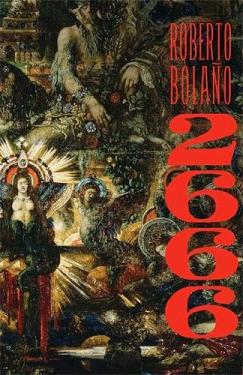 What were your favourite books of the year? I ask because a few weeks ago I spent half an hour pulling together a list of my books of the year for the December issue of Australian Book Review, which hit the shops this week. Writing these sorts of lists is always a slightly odd process, not least because it’s often difficult by November or December to remember what you read in January (though I’ve been using Facebook’s Virtual Bookshelf app to track my reading lately, which has helped a bit with that part of the process). But it also throws up other problems. Does a book count if it was published last year but you didn’t read it until this year? What happens if you had a dud year, and nothing much lit your fire? And, much as I hate to admit it, there’s always the need to look like I’m a slightly more serious person than I actually am.
What were your favourite books of the year? I ask because a few weeks ago I spent half an hour pulling together a list of my books of the year for the December issue of Australian Book Review, which hit the shops this week. Writing these sorts of lists is always a slightly odd process, not least because it’s often difficult by November or December to remember what you read in January (though I’ve been using Facebook’s Virtual Bookshelf app to track my reading lately, which has helped a bit with that part of the process). But it also throws up other problems. Does a book count if it was published last year but you didn’t read it until this year? What happens if you had a dud year, and nothing much lit your fire? And, much as I hate to admit it, there’s always the need to look like I’m a slightly more serious person than I actually am.
Unfortunately ABR’s lists aren’t online, but if you all promise to run out and buy a copy I don’t think they’ll mind if I reveal my picks, which were (in no particular order) Hilary Mantel’s Wolf Hall, A.S. Byatt’s The Children’s Book, J.M. Coetzee’s Summertime and Marilynne Robinson’s Home.
Looking at the list I’m painfully aware of how conservative it looks. But I’m also reminded that about two minutes after I sent it off, I realised I’d left off the two books which should, by rights, have headed the list, Roberto Bolano’s 2666 and Jonathan Littell’s opus, The Kindly Ones.
What interests me about both is that they’re both immense, and immensely flawed, yet simultaneously both are works that test the limits of what the novel can do. The Littell – ostensibly the more conventional of the two, and not dissimilar in its way from William Vollman’s similarly immense and semi-factional Europe Central – is, in a formal sense, a failure, unable to resolve the tension between the stories of the Oresteia which are invoked by its title, and the historical material in which it is grounded. Yet despite that it is a powerful and deeply disturbing work, not just because of its many graphic and oddly numbed scenes of violence and degradation, but because the textures of its narrator, Aue’s, consciousness are so repulsive, and, more importantly, because it demands, both by virtue of its extraordinary synthesis of historical and documentary sources, and its curiously uninflected observation of the monstrosities it depicts, that the reader look at the Holocaust anew.
At a formal level, 2666 is even more problematic than The Kindly Ones. Unfinished at the time of Bolano’s death in 1999, it has been translated with great fluidity and care by Natasha Wimmer. As Musil’s Man Without Qualities demonstrates, a novel does not need to be complete to be great, but 2666 is incomplete in a deeply indeterminate way. Pieced together from several manuscripts after Bolano’s death, its current incarnation was supposed, at least at the time of publication, to be a good approximation of Bolano’s intentions. But in the year or so since it was published more sections have appeared, suggesting that judgement might be premature.
Exactly where these new sections fit isn’t clear. Certainly the book as it stands seems complete, and it’s difficult to imagine how new sections could be incorporated into the whole. Yet like Bolano’s similarly dazzling The Savage Detectives, the novel celebrates a particular form of uncertainty and fascination with the outer limits of meaning by incorporating them into its fabric, qualities that suggest its form is mutable in a way the form of most novels most definitely is not.
What’s remarkable about both is that they question the very idea of the novel, in the case of The Kindly Ones by eliding the boundary between the novel and history, in the case of 2666 by creating a book which through its textual game-playing and multiplicity deliberately (or presumably deliberately) denies the reader the satisfactions of resolution and closure we normally associate with fiction.
I’m not sure how I managed to forget two books which so infuriated and delighted me when I was doing my list for ABR, but I think the fact I did should be a reminder of how provisional any list of the best books is. Because when I think about it, there are easily half a dozen more I could have included. Richard Holmes’ joyous The Age of Wonder, for instance, or Esther Woolfson’s wonderful Corvus. Or Robert Charles Wilson’s Spin. Or David Malouf’s Ransom. Or James Lasdun’s It’s Beginning to Hurt. The list goes on and one.
Which brings me back to the question I asked at the outset. What are the best things you’ve read this year? Are there books I should have read I haven’t? Any remarkable and unexpected discoveries? Can you confine yourself to just three, or five, or do you need to list more? Either way, I’d love to know.
Break text





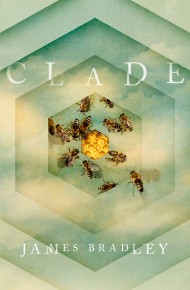

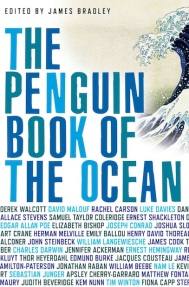
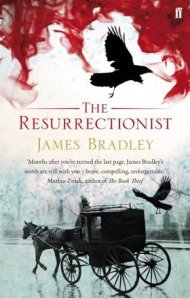
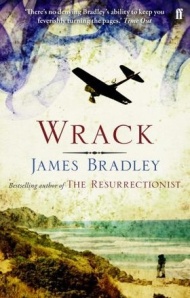
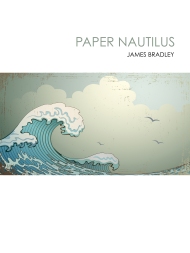
My g.f. and I bought 2666 in the FSG paperback edition, where the three sections were split into three books. We took it to Mexico planning to read it. She finished all three. I didn’t get a chance, she ran off w/ the final two, when we split in Honduras, leaving me w/ only the first. I agree that 2666 is problematic: on a sentence to sentence level, Bolano can overwrite sentences and really drive them into the ground, more floral than Proust, but then he can really just drive a point home w/ a sharp little cut. Traveling around Mexico, The Savage Detective was the more pure, relevant reading experience, but I grew frustrated w/ the multiple narrators at the end of the book and ultimately dumped it in Guadalajara. Bolano has really owned 2008-09 for a lot of people I know. I think David Foster Wallace’s The Pale King will take that place in 2010; certainly the book I most look forward to. In 2009: Nicholson Baker’s The Anthologist is his best book of fiction since his debut, threading his own obsessions w/ contemporary American poetry w/ a weird, flakey narrator and David Byrne’s Bicycle Diaries was a good collection of some of his blog posts and new material, good for travelling and thinking about cities in a different way.
It’s freaking me out to start thinking about my ‘best of’ list, but it’s December now, and there are only 27 more reading days left in the year and it’s administratively conscionable, I guess, to start revisiting and compiling.
Less than one-fifth of the books I’ve read this year have been published this year, but in terms of 2009-published/2009-read books, Wells Tower’s short story collection, Everything Ravaged, Everything Burned is kind of a no-brainer choice for me. Consistently surprising, witty, classic but alchemical — it’s set my new bar for opening-the-heart reading. Evie Wyld’s After the Fire, A Still Small Voice was something I would never pick up from the shelf — three generations of violent Australian men — but it’s exquisite and absolutely well-tempered. Also loved Justine Larbalestier’s Liar and Kalinda Ashton’s The Danger Game.
I read A Confederacy of Dunces for the first time this year, too — rather unforgettable.
I have to say, I kind of avoided the 2009 giants: Bolaño, Coetzee, Byatt, Roth (amazing cover, though), Littell. I’m saving Home — it’s the only Robinson novel I haven’t yet read.
Argh! Wells Tower! Such a no-brainer I forgot it. And yes, definitely should have been on my list as well.
Estelle, I thought I bought a copy of Dunces at some point – mortified to find I’ve imagined that.
James, such a shame your remarks about Littell and Bolano did not make their way into the ABR piece – great insights. My list is going up next week – I am giving the Overland subscriberthon button some blogroom at present.
What a super Bolano mooching story Mr T-M has put up there. Love this blog.
I’ll look forward to that, Gen. And yes, amazing story, Sam. In case the name doesn’t ring any bells, Sam’s the editor of Cutwater, and a very talented writer in his own right. I assume the Mexico trip is material? If it’s not it should be.
wow, James, the blogroll is looking very sexy too.
Well, thank you.
Indeed, it is an exceptional looking blogroll 🙂
The best book I’ve read this year was The Road, so obviously I am behind probably everyone else in the world on that count. 2nd favourite would be Miss Smilla’s Feeling for Snow (again, behind).
My problem is the new/popular books I put on hold at the library take forever to come in.
I love and loath list! Dog Boy – Eva HornuryRansom – David MaloufJasper Jones – Craig Silvery
Sumertime – JM CoetzeeThe Kindly Ones – Jon LittellThis is how – HJ HylandD- Day – Anthony BeevorAmerican Rust – Philip MeyerBunny Munro – Nick CaveThings we didn’t see coming – Steven Amsterdam
But the best books I’ve read this year are those I’ve rediscovered…To kill a mockingbird, or the history of love. I hope in a few years to return to summertime or dog boy.
Hi James. Reading your list, and the ones that you forgot to include, just makes me feel terribly behind on my reading. I’ve only just finished The Road, which devastated me, and earlier this year I savoured An Equal Music, which was published in 2001 (gasp). Pat Barker’s Regeneration was also a first-time marvellous discovery for me this year. The one new book I am recommending to every reader I know is Olive Kittredge by Elizabeth Strout. It won the Pulitzer Prize for fiction earlier this year and is a collection of “linked stories” which have an extraordinary cumulative emotional power. Olive K appears in every story – sometimes in a cameo role, other times as the central character – and there are sentences in there that forced me to put the book down in my lap and take a moment to digest/recover. Happy holiday reading, Virginia
My reading’s only up to date because I’m a tragic slave to fashion, and I can’t bear not being in the loop. Pathetic, really. Weirdly I’m reading the Strout as well, which I’m enjoying, though it’s a little mannered for my liking. But she’s a remarkable observer.
The Slap (Christos Tsiolkas) was the stand out read for me in 2009. The characters were alive.
In theory I keep a notebook listing all the books I’ve read, but I seem to have fallen down on the job in 2009. I did read Olive Kitteridge and was amused by it mostly because I was friends at the time with a former teacher and found it – shall we say – irritatingly true to life. Read Everything Ravaged, Everything Burned in 2010 and was hideously disappointed by it, especially since the title story was, in my opinion the weakest of the lot (hence, what a way to end a short story collection). I finally got around to reading Tomson Highway’s Kiss of the Fur Queen, and that’s a must-read for anyone who lives in a nation that’s treated its aboriginal people shabbily (pretty much all of us, right?), and discovered Joseph Boyden (Through Black Spruce which was phenomenal, although his earlier novel Three Day Road is even better, in a Canadian First Nations Pat Barkerish-sort of way. Jeannette Walls The Glass Castle was spectacular enough that I want to read her next book. Was a little iffy on Kazuo Ishiguro’s Never Let Me Go; began to think Zadie Smith really could write after reading On Beauty; loved Mark Haddon’s The Curious Incident of the Dog in the Night-Time (why did I wait so long to read this one?). And was mesmerized by Simon Winchester’s The Map That Changed the World. I think though that if I were able to take only one book published in 2009 with me to my desert island, it would have to be Lisa Moore’s February, which I reviewed on my blog. Although Uwem Akpan’s Say You’re One of Them would be a close second, if only for the fact that it reminded me of the mind-boggling power of fiction to convey emotional truths. In a single 28-page story I finally understood what had happened in Rwanda, which hadn’t happened over the course of reading Romeo Dallaire’s Shake Hands With the Devil. Phew. Maybe I do read too much. 😉